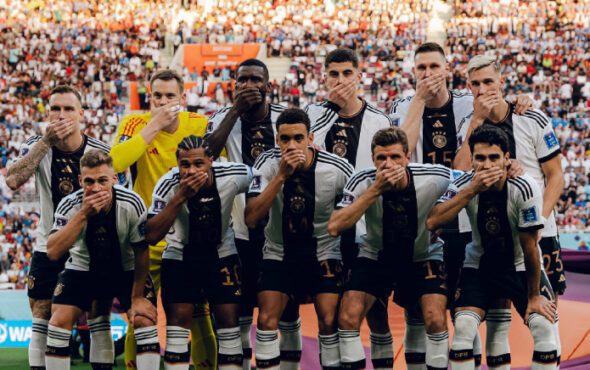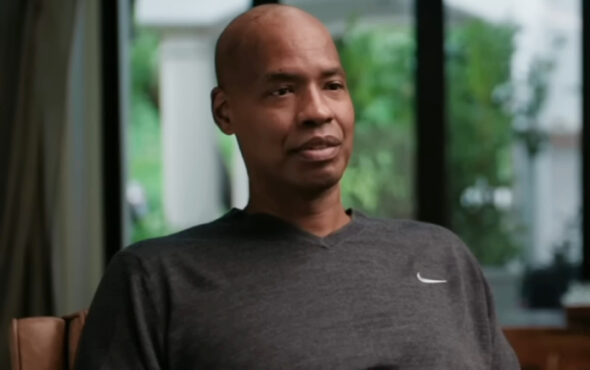
Germany’s national team contested FIFA’s ban on pro-LGBTQ+ gestures at the Qatar World Cup in their first match of the tournament.
The team posed covering their mouths before facing Japan, who they lost to 2-1.
The German side confirmed that this was in opposition to FIFA’s announcement that they will sanction teams wearing ‘One Love’ armbands, intending to show support for LGBTQ+ communities.
“We wanted to use our captain’s armband to take a stand for values that we hold in the Germany national team: diversity and mutual respect. Together with other nations, we wanted our voice to be heard,” stated the side’s official Twitter page.
“Denying us the armband is the same as denying us a voice. We stand by our position.”
Both the English and Welsh teams cancelled their commitment to wear the armbands following FIFA’s announcement that any players wearing the armbands face an immediate yellow card.
“As national federations, we can’t put our players in a position where they could face sporting sanctions including bookings, so we have asked the captains not to attempt to wear the armbands in FIFA World Cup games,” read a joint statement from the Football Associations of England, Wales, Germany, Denmark and Belgium.
The German Federal Minister of the Interior and Community, Nancy Faeser, was photographed wearing the armband whilst watching the match.
The BBC presenter Alex Scott also opted to wear the armband whilst commentating. Scott has not publicly labelled her sexuality, but confirmed she was in a relationship with former Arsenal Ladies teammate Kelly Smith in her 2022 memoir.
Alex scott a women who has just come out and now is in a country where she she can be killed or imprisoned for being part of the community is wearing the one love armband, brave and powerful stuff from her pic.twitter.com/1f2RYvtpDg
— A🦋 (@littlelacasse) November 21, 2022
The German team’s protest is the latest in a number of international responses to Qatar’s human rights record and criminalisation of LGBTQ+ people. Punishment for homosexuality there can be as severe as the death penalty.
The World Cup is currently in the group stages and continues until 20 December.



